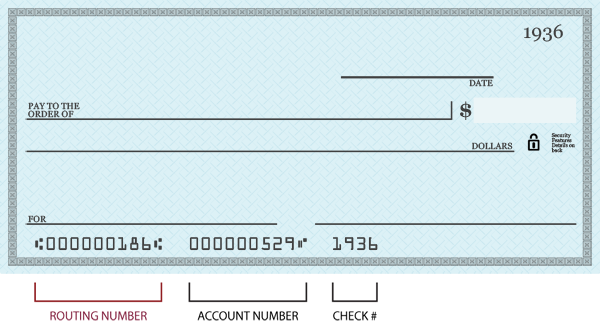The start of a new year often offers a clean slate to set some goals and there is no better time to add improving your credit score to the list. The goal is to ensure your credit score is favorable and high enough to have a positive influence on future opportunities. As a reflection of monetary habits and creditworthiness, credit scores are evaluated by lenders to determine the ability to payback a loan. They are also used by landlords, insurance companies, and employers to make important decisions about you. And a less-than-healthy score may mean missed opportunities and financial setbacks.
How do you improve a credit score?
First things first: know your current score! Request a free credit report from each of the primary credit reporting agencies: Equifax, Experian and TransUnion. Each agency will provide your FICO® score—basically a summary of your credit. FICO® scores range between 300 and 850. The higher the 3-digit number, the better! Scores between 580 and 699 are fair, but a score below 580 is considered poor. Your bank may also be able to provide your credit score. Lakeland Bank offers customers the ability to check their score daily using Credit Sense.
Note: Credit reports can be obtained yearly and provide an opportunity to review reports for mistakes or red flags that may be hurting your score. If there are any errors, contact creditors as soon as possible to get them resolved.
While there isn’t a quick fix to boost credit scores, daily decisions can have a positive impact on helping you make improvements. Here are three noteworthy practices to incorporate into your money management style.
1. Pay all Bills Consistently
Make monthly payments on time to demonstrate an ability to successfully manage money. This includes paying rent, utilities, credit card balances, student loans, etc. when due. If creditors notice that payments are regularly skipped or delayed, payment habits will be noted as higher risk. When any lender offers a loan, their main priority is to get back the money borrowed so that their bottom line doesn’t suffer. On-time payments are always reassuring. A history of this may mean more peace of mind for them, and in turn, more favorable interest rates or greater lines of credit for you.
2. Establish and Maintain Credit Accounts for the Long-Term
Shop around before making credit-related decisions to ensure what you choose is manageable for an extended period of time. There is often a lot of surface-level appeal to the discounts or perks offered upon opening a credit card. However, the fine print may conceal high interest rates and fees. Don’t make credit-related decisions on a whim, especially at retail stores. They are notorious for getting people to apply for a credit card at the register to receive a special discount on their purchase. Although these offers are tempting, take a moment to consider how another credit card will affect your credit score. Instead, demonstrate that you’re selective when it comes to credit options. On a similar note, it’s important to avoid closing lines of credit too soon. Line of credit longevity is another factor that plays a role in determining credit scores—longer-held credit cards should not be closed unless it is absolutely necessary since it may be more favorable to leave the line open, but opt not to use it.
3. Remember that Some Debt is Good
Sometimes the word “debt” just sounds ugly. But not all debt is bad—there is good debt. This is good news because you don’t have to be completely debt-free to prove credit worthiness. Structuring debt in a responsible way will help you demonstrate the ability to manage credit well and show that you respect credit limits. This means not treating credit like cash, maxing out credit cards or taking on more debt than you can afford. Being able to properly manage debt is a skill that is perfected with practice and time.
As you prepare to put your best foot forward this year, let financial indiscretions be a thing of the past. Know that you may need to modify habits and make adjustments in the months ahead to stay on track. Be easy on yourself--building a healthy credit score takes time and consistent effort, but the commitment you make to your financial wellness will be worth the discipline! Lakeland Bank can help support your efforts to improve credit or manage existing debt. Stop by the nearest Lakeland Bank branch or visit LakelandBank.com.


